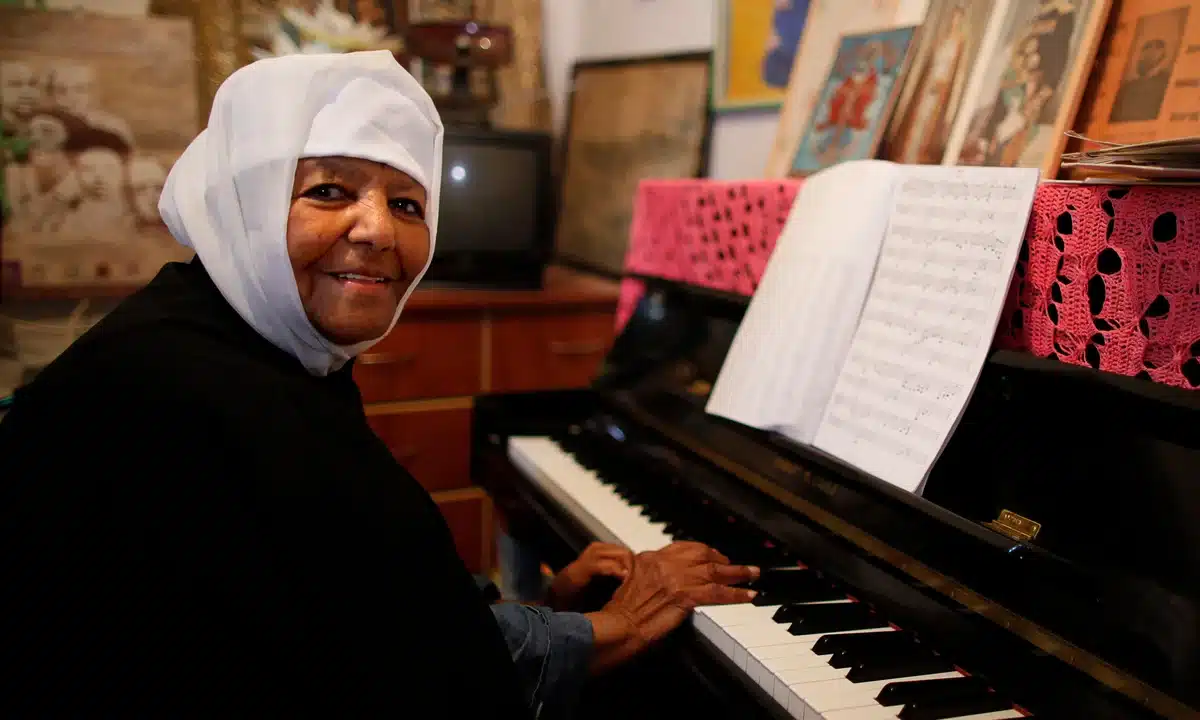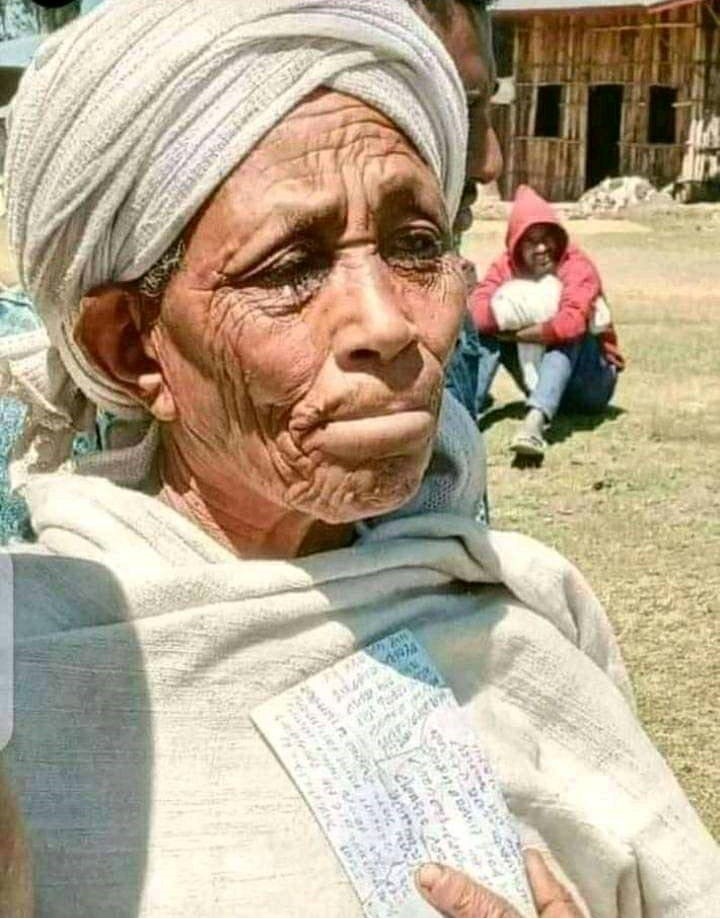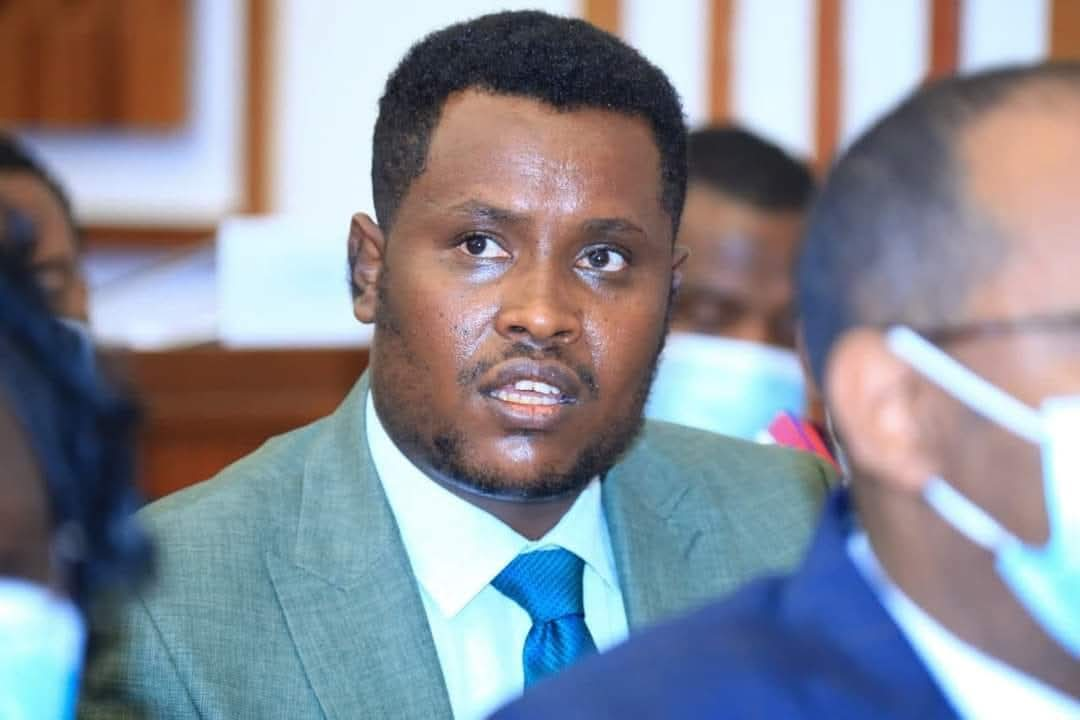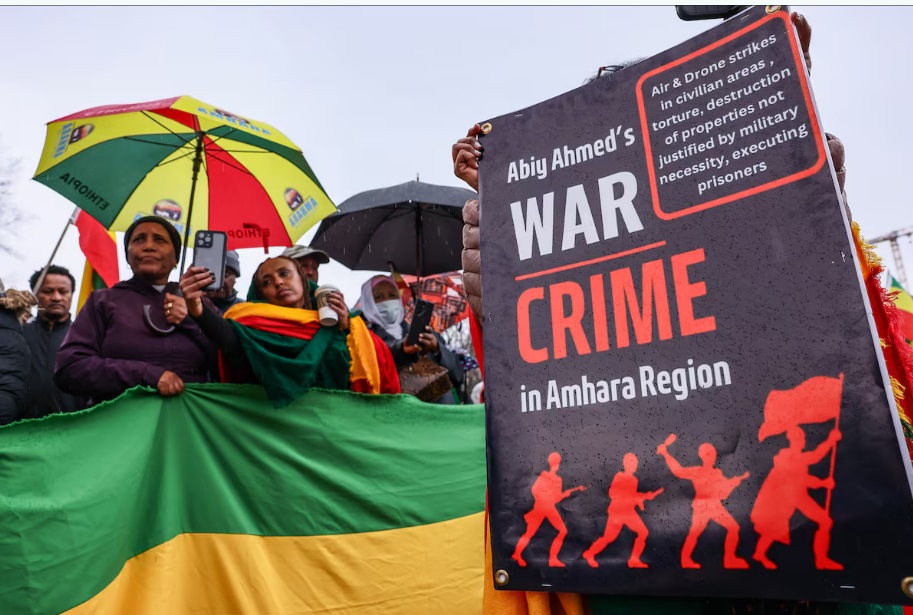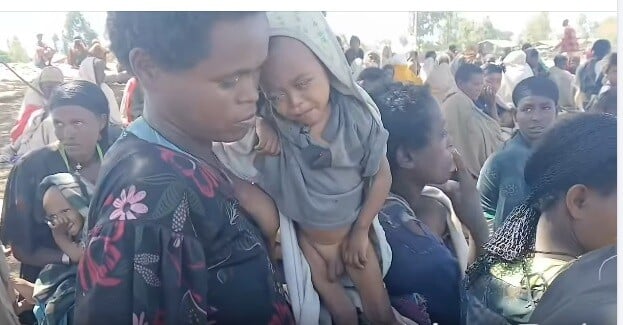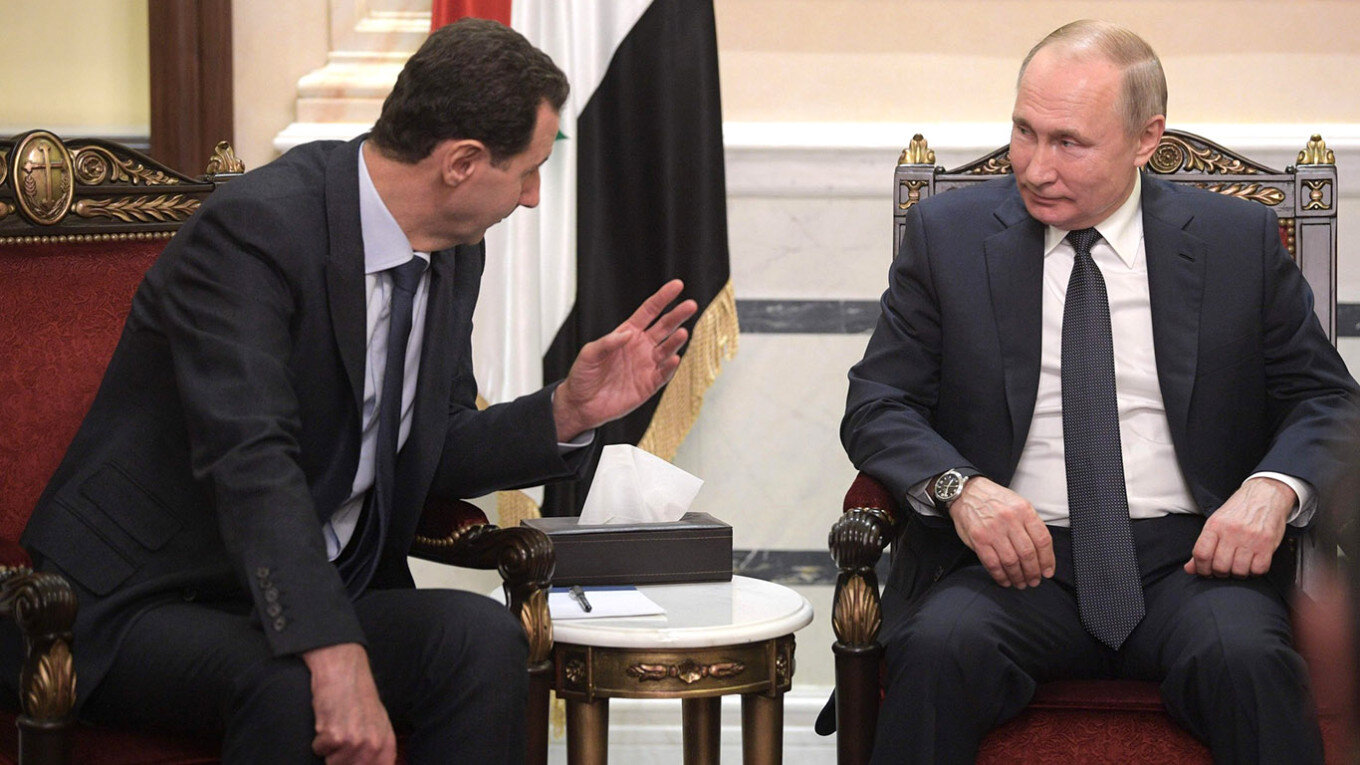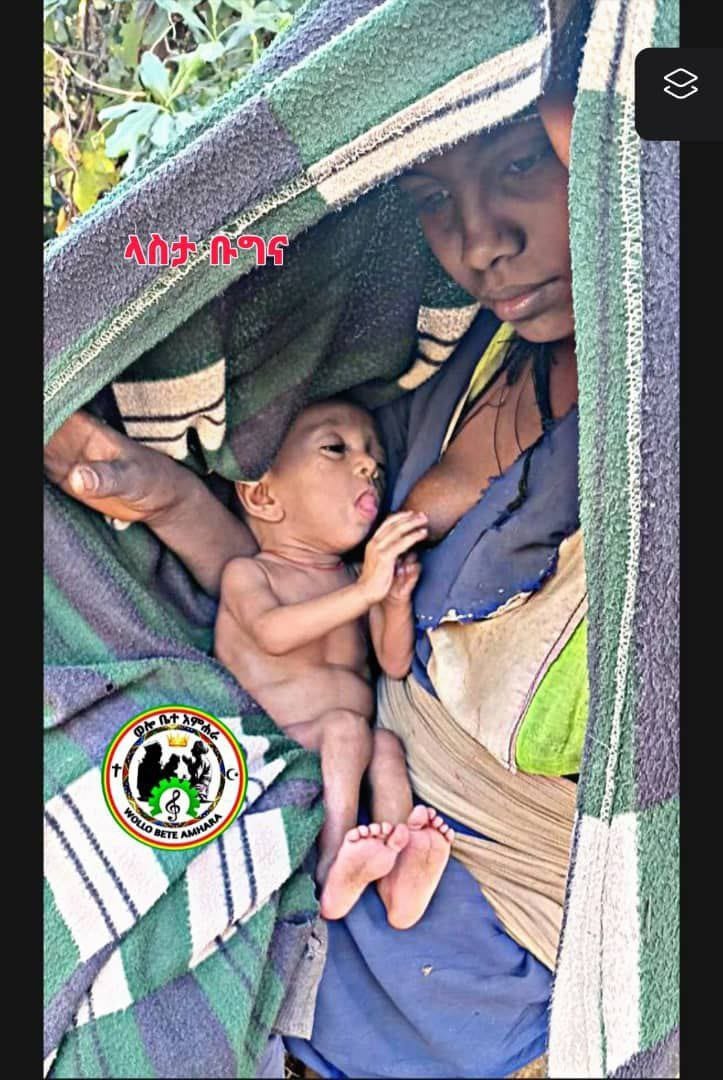
An October 2024 United Nations Development Program (UNDP) report on Ethiopia paints a country gripped by dire multidimensional poverty crisis, afflicting a substantial portion of the population. The UNDP assigns a multidimensional poverty index (MPI) scorecard for middle and low-income countries after assessing deprivation across three core dimensions: health, education, and living standards. Ethiopia’s 2024 MPI scorecard stands at an alarming 39.2% for urban dwellers and 79.7% for rural citizens. This means almost four in 10 urbanites and eight in 10 rural residents are enduring abject poverty (people are barely able to survive). Ethiopia’s human development index (another crucial UNDP composite index of life expectancy, education, and living standards) stands at a paltry 0.38, which means that a child born in Ethiopia today will achieve only 38% of their development potential. According to the World Bank, Ethiopia has about 86 million people living in poverty, more than any other African country.
Multiple shocks since 2018 (conflict, drought, floods, locust infestation, and inflation) have affected more than 90 % of the population and have reversed the progress made in the past few decades. The war with the TPLF that ended two years ago caused significant loss of life and destruction of property and critical infrastructure, and denied people access to essential services (healthcare, education, social service, transportation, etc). That now is being replicated at a much greater scale in Amhara and Oromia regions. A good portion of the rest of the country is also rife with lawlessness, low intensity conflict, and hopelessness. At the same time, Ethiopia’s economy is under severe strain due to domestic wars, stubborn inflation (23.9% according to the IMF), mounting debt, and food and energy supply chain disruptions due to conflicts domestically and the war in Ukraine. Evidently, Ethiopia’s reported healthy year-over-year GDP growth of the last few decades (mid-single digit to mid-double digits) was not enough or was not managed right to shield vast swaths of citizens from quickly descending into dehumanizing poverty. It also shows the dilution and/or inability of traditional socio-economic coping mechanisms to cushion people from the effects of mostly human-induced and growing upheavals. The result of which is a larger proportion of the population is sinking deeper and deeper into poverty. According to the UNDP, poverty in Ethiopia, has jumped from 18 percent to 24 percent between 2016 and 2022 (the latest available data). The UN also reports that more than 20 million Ethiopians faced severe food insecurity in 2023. Millions of school-edge children are out of school and access to healthcare has sharply deteriorated in the conflict affected regions. Among the triggers of devastation, the most damaging are the intensifying and widespread conflicts ravaging the country in all corners. Shock implies the existence of a temporary adverse phenomenon. Drought, floods, locust infestation, and inflation are cyclical and can be overcome through targeted interventions and responses. War on the other hand is induced by a political problem and requires a political solution.
Urban poverty has been rising with recent data indicating a significant increase in poverty rates, particularly in cities such as Addis Ababa, likely due to push factors such as wars and displacements in various regions, adverse climatic conditions, and shrinking access to arable land. At the same time, thousands of urbanites are being uprooted and displaced from their homes by the government’s forced corridor development initiative, causing economic instability, social fracture and isolation, and homelessness, further worsening the country’s poverty crisis. The positive impacts of the initiative in advancing climate change, public health, and quality of life goals are not lost on people. But they find the government’s misplaced priority of giving this and similar initiatives (opulent palaces and ghost resorts) precedence over and above the country’s dire political, security, and socio-economic situation astonishing and irresponsible. The government’s spontaneous adoption of the initiative (without meaningful public participation or early planning), its top-down draconian implementation approach, and the deprivation of property and livelihood rights of citizens without due process of law raises fundamental constitutional, legal, and human rights concerns. Contrary to accepted urban planning and development practice, the breakneck rush to implement spontaneous projects with little or no public consultations points to development by fiat, which is rarely successful or sustainable. And the obsession with fanfare around inauguration of such rushed projects, stinks of publicity gimmick to hide Abiy’s failure of governance rather than celebration of accomplishments responsive to the immediate needs of citizens. Hence, it is plausible to assume that the government is prioritizing untimely projects of questionable value as a disruptive tool to distract people from staging unified resistance to its failed governance. At the same time, the absence of unified peaceful resistance in the face of government abuse indicates the lack of independent institutions and the dismal state of civil society to fight back for social justice, the rule of law, and accountable democratic governance.
The disconnect between the immediate needs of the people and their purported leaders’ misplaced priorities cannot get any starker. The leaders seem to be intoxicated in their own echo chamber, far removed from the daily agonies of their people and rushing half-baked projects of questionable value while the country is embroiled in unprecedented multiplicity of conflicts and a huge proportion of its population is sliding into grinding poverty. Given the state of things in Ethiopia, simmering discontent is palpable in the country. Independent opinion polling is foreign to the leaders of Ethiopia. But if they had the courage to allow one, the simmering discontent is right before their eyes. In a country where a significant majority live in poverty (86 million out of 120 million) and struggle to meet their basic daily needs, the government is spending its meager resources on unwinnable wars, expansive sidewalks, bike lanes, opulent palaces, and inaccessible ghost resorts. A performance unlikely to earn people’s vote of confidence. The insecurity in the country is so bad, many embassies have issued travel warnings advising their citizens to avoid road travel outside of Addis. It’s particularly disheartening to see child poverty growing both in the rural and urban areas, while the government builds projects of questionable value worth in the billions.
The Abysmal State of the Education Sector
Recent government reports indicate an education sector in shambles — a sector indispensable for building a stable, peaceful, modern, and prospers nation. Independent reports indicate the sector is facing serious challenges, including lack of funds, enrollment decline, low teacher morale, and layers of institutional and policy constraints. In many of the conflict zones, schools are being converted into military camps and where schools are open enrolment is in decline due to insecurity and poverty. Reports from the Ministry of Education show that in the past two years, only 3%-5% of those who sat for the national high school exit exam passed with a score of at least 50%. This represents an incomprehensible failure rate of 95-97%. Teachers reportedly are going months without pay (some are on dehumanizing “school feeding” program), and when they do get paid, they are forced to surrender portions of their pay to fund Prosperity Party projects. The state of the education sector is in deep crisis and failing Ethiopia’s precious children and the country’s future. But the real culprit here is the government that has failed the kids and the future of the nation. It is impossible to imagine a country with a 3%-5% school passing rate to achieve political, economic, or social stability. Despite this national crisis, no one is held accountable, and the government is busy funneling its scant resources and full energy on waging wars against its people and projects of questionable value. Beyond academic and skills development, the education system of a country plays a fundamental role in forging a shared national identity, peaceful coexistence, and patriotic feeling among its diverse citizens. Ethiopia’s divisive ethnic politics and politicized education system is impeding the realization of such national goals. In addition, ethnic politics is antithetical to nurturing a merit-based system, essential to building a rule-based, equitable, competitive, and prospers nation. In a world where countries are busy equipping their youth with shared national identity and skills to innovate, create, and drive entrepreneurship, Ethiopia is busy doing the opposite and digging itself further into a quagmire.
Astute and proper planning requires investing in education, healthcare, and projects that create mass employment to absorb the youth bulge into the workforce. If properly nurtured, the growing youth bulge could represent an engine of growth to transform the country into an economic powerhouse. It’s a strategic imperative for Ethiopia to prioritize peaceful coexistence and productive, pro-poor and pro-youth policies and projects to mitigate the immediate impacts of the current crisis and prevent further sliding into economic misery and political instability. The crucial questions here are — what is causing the proliferation of conflicts between the federal government and the various regions, among regions, and within regions; and what can be done to stop them? An honest examination of these questions shows Ethiopia faces a systemic and structural impediment in its constitutional framework to peaceful coexistence that needs immediate fixing. The problem started with the introduction of a highly divisive federal ethnic system by the TPLF and its allies in the 1990s with little or no public consultation. Since then, discord, power and resource competition, and ethnic radicalism and conflict have been on the rise and tolerance and peaceful coexistence on a downward trajectory.
Failure to Learn from TPLF’s Costly Political Mistakes
The TPLF, a product of Ethiopia’s Marxist oriented student movement of the 1960s and 1970s, championed ethnic identity and ethnic nationalism, largely copied from the former Soviet Union and like-minded countries as an organizing and governing model. Under the TPLF’s Constitution, ethnic groups with much higher populations (Oromo and Amhara) were relegated to second fiddle status. The obvious unfairness in the lopsided arrangement aside, over time it became clear that the inherently divisive Constitution has become a structural impediment to peaceful coexistence, shared identity, and nation building in a country of more than 80 ethnic groups no matter which ethnic group is in power. The TPLF did more harm than good to the country (and itself) by introducing the incendiary system and refusing to reform it over time. Ethiopia’s alarmingly deteriorating political and socio-economic state of the past 30+ years is uncontested evidence that the country’s ill-advised federal experiment didn’t bring either peace, democracy or sustainable development. The country’s future hinges on removing the structural impediment in its federal arrangement to peaceful coexistence, democracy, and development through dialog, while addressing the legitimate demands of ethnic groups for equitable representation and cultural autonomy. The hope was that Abiy, and his colleagues had learned from the TPLF’s painful mistakes and would embark on a reform process to correct the former’s misdeeds. Hence the wide public support Abiy and his team enjoyed when they transformed the TPLF-led EPRDF ethnic coalition into a unified national Prosperity Party (PP). Many thought this was a critical step in de-emphasizing ethnic politics that has poisoned the country’s politics for so long. But this was never sincere, as the PP came to be the continuation of the same failed EPRDF policies under a new name. In fact, PP put ethnic politics on turbocharge and division, conflict, and poverty have skyrocketed under its rule.
Although the TPLF failed miserably in the political realm, it had some success on the economic front, which was aided by a rare infusion of mass international development assistance. But the limited economic success came at a huge cost of politically subduing the contesting ethnic groups and widespread gross human rights violations. But the party’s divisive governance and distorted economic development model that favored the few over the majority was never right nor sustainable. The party ultimately paid a devastating political price due to failure to honestly assess and cure risks in the Constitution. The TPLF squandered the opportunity to reform and guide the birth of a workable new system fit for a diverse and large nation with adequate guardrails for minority groups. PP and other like-minded parties need to learn from the TPLF’s costly mistakes and avoid the same fate and save the country and themselves from the same pitfall. They cannot afford to ignore the simmering discontent and worsening state of things in the country. It is increasingly becoming difficult for PP to defend the failed system by waging wars on multiple fronts and hide under a barrage of shiny projects and glossy propaganda. Some argue that ethnic federation is too entrenched in the country to reverse at this stage. A position that likely grew out of deep frustration rather than conviction in the efficacy of the system. History shows us that resilient and dynamic nations thrive because they timely acknowledge and repair fault lines in their governance structure through consultative processes. Ethiopia has arrived at a moment where it cannot afford to kick the can down the road any longer. The first order of things must be to stop the raging conflicts, bring all parties to the negotiating table, devise a genuine reconciliation mechanism, and agree on the need for a constitutional reform. The risks of not taking immediate and decisive action outweigh any short-term benefits of staying on the same disastrous course! The time calls for a courageous and resolute leadership.
More:
- https://www.undp.org/sites/g/files/zskgke326/files/2024-10/2024_global_multidimensional_poverty_index.pdf
- https://www.worldbank.org/en/country/ethiopia/overview
- https://theconversation.com/ethiopias-education-system-is-in-crisis-nows-the-time-to-fix-it-217817#:~:text=Although%20much%20progress%20has%20been,significant%20change%20in%20student%20demographics.
Fayessa A.

